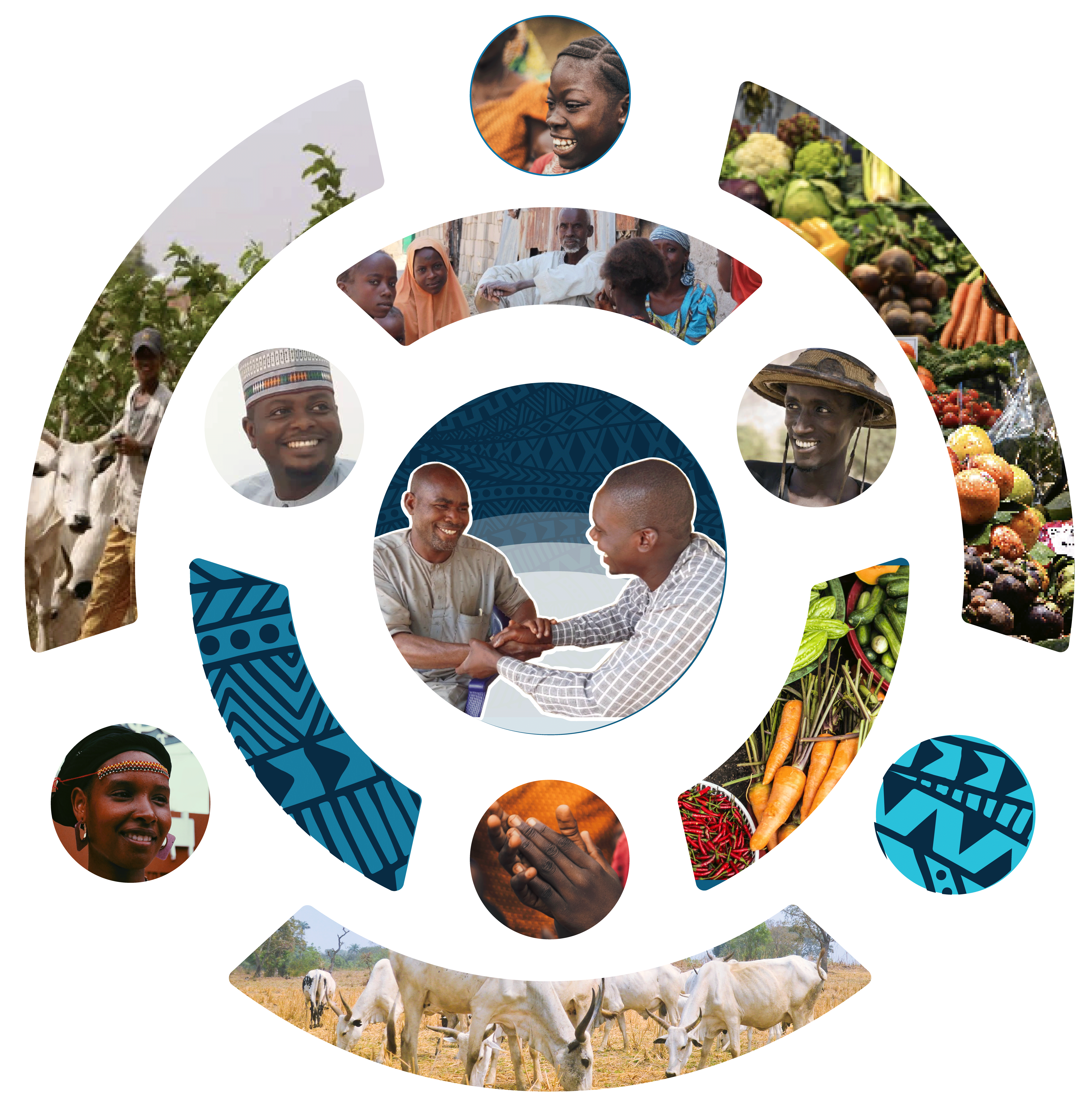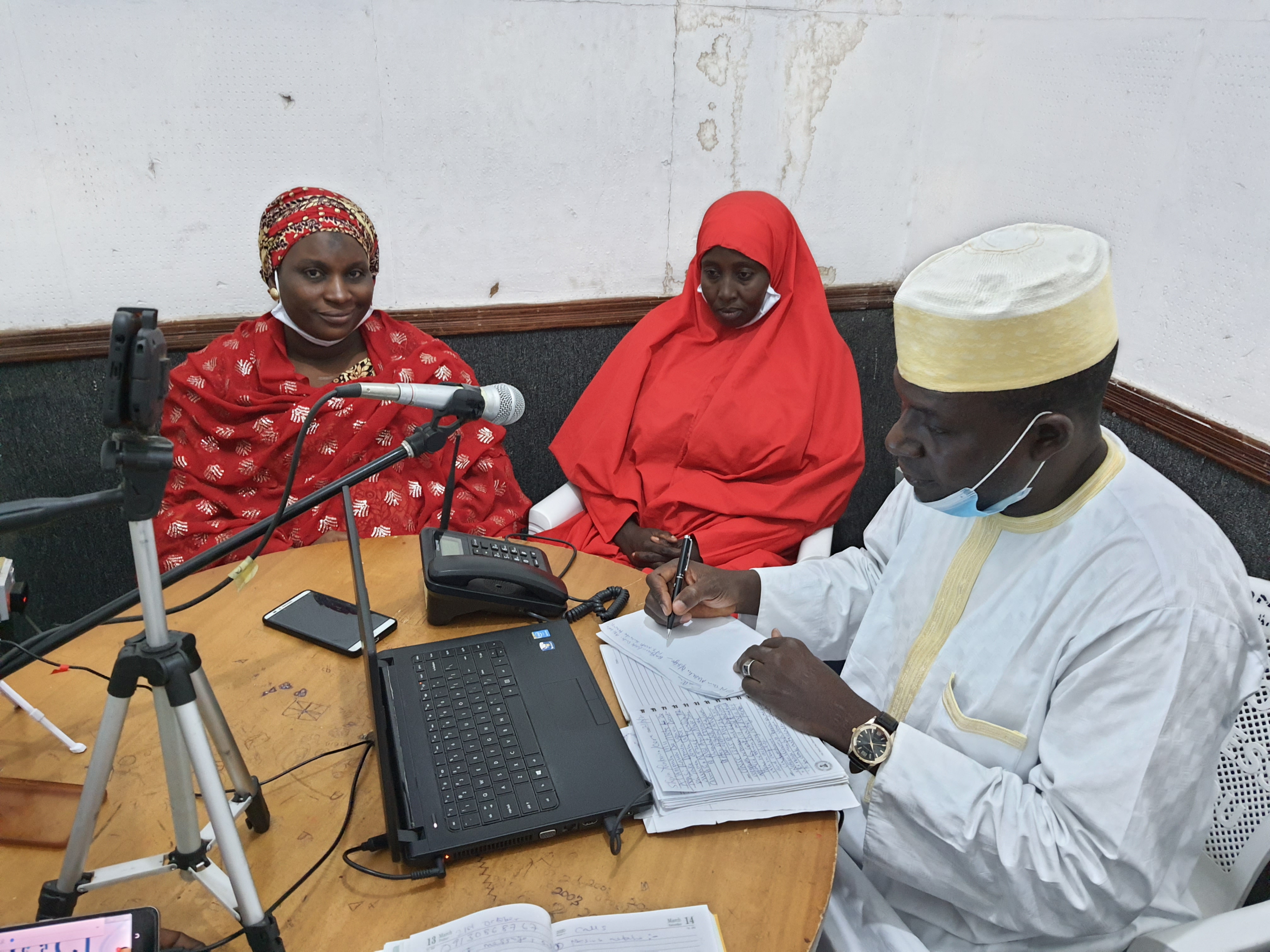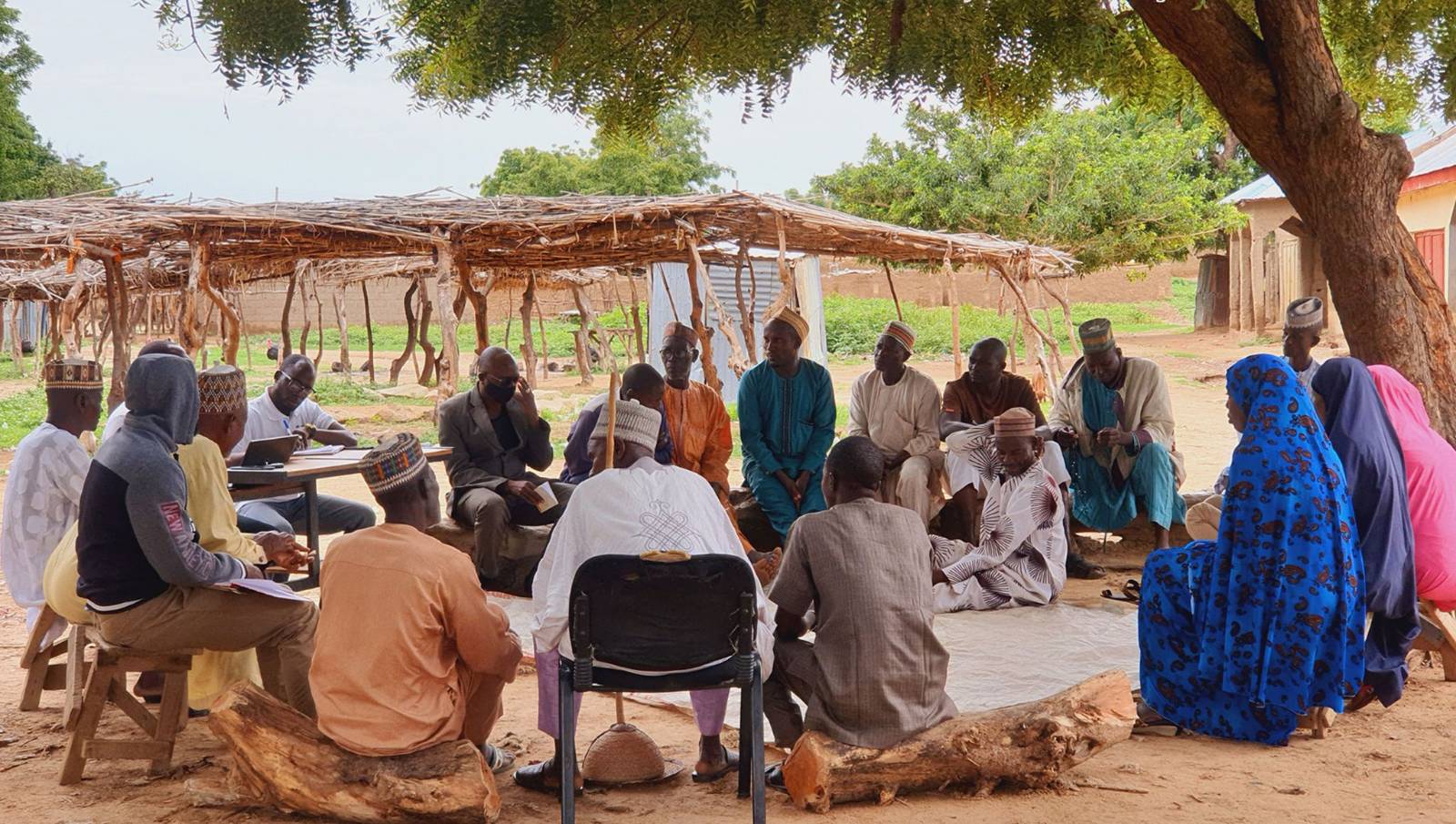Engaging grassroots community members in contributing to violence prevention.
Neem promotes resilience by building communities’ ability to manage grievances and be truly inclusive, encouraging peaceful dialogue and engagement as a response to violence, and supporting psychological healing.

Protecting Our Communities:
This project addresses the critical need to engage communities— and especially women and youth—as part of a four-part system to mitigate conflicts among cattle and crop farmers in Nigeria’s Middle Belt.

Objective One
To develop the abilities of women, youth, and cattle and crop farmer association members to more effectively advance their security interests.

Objective Two
To engage grassroots community members in contributing to violence prevention.

Objective Three
To use strategic methods to advocate for government and security agency actions on cattle and crop farmer conflicts that are shaped by grassroots experience and priorities.
Project Impact
The project’s primary impact will be in the capacity of communities to better prevent mob violence and use collaborative structures to respond to tensions, well beyond the grant period. As communities are more engaged in conversations about security needs and solutions, this project also anticipates increased responsiveness will be evident among politicians and security agencies.




STRATEGY AND APPROACH
All sectors in Nigeria’s Middle Belt share the goal of civilian security, but where economic, ethnic, religious, and political divisions exist, conflict actors exploit those divisions to encourage community members to join in violence. By working directly with civilians to reduce those divisions and strengthen trust and understanding, this project builds resilience to the provocations, reducing the frequency of mob violence. It also engages ordinary citizens in (1) actions to protect their communities and (2) advocacy with cattle and crop farmer associations, security agencies, and government on civilian security needs and solutions. The project also moves forward some of the action items from the Farmers/Pastoralists Conference, particularly supporting their desire to come together more and identify and work on solutions that benefit both of them.
The main modalities are (1) training community facilitators, (2) conducting a series of trust-building and problem-solving dialogues, (3) engaging communities on radio in discussions of civilian security issues, (4) monitoring and deescalating tensions and rumors on social media, (5) community-led early warning-early response, and (6) advocacy. Sustained dialogue and early warning-early response (EWER) are natural complements to achieve civilian security. When community members develop trust and common purpose during dialogues, they are better able to collaborate to implement warnings and deescalating responses. EWER is a necessary short-term measure but it is principally reactive. When early warning actors or early responders then return to dialogue, they are better prepared to examine incidents to identify conflict drivers and tailor solutions to address them. Thus, early warning and response can prevent violence in the moment, and the products of the dialogues can prevent violence in a sustained way.
Contributing to the overall goal of improved civilian security.
This project addresses the critical need to engage communities— and especially women and youth—as part of a four-part system to mitigate conflicts among cattle and crop farmers in Nigeria’s Middle Belt.
